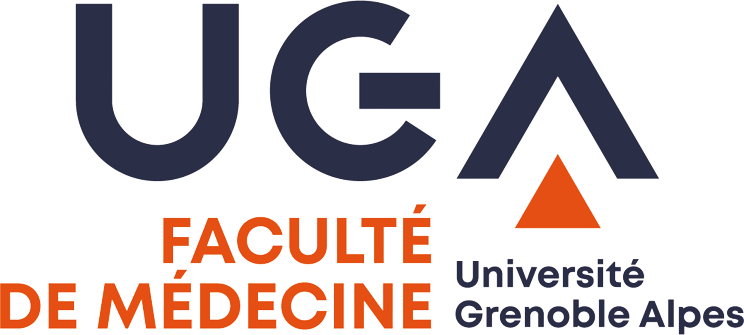PEPPER: performance of multiplex PCR in intensive care for the detection of VAP
PEPPER : performance de la PCR multiplex en réanimation pour la détection des pneumopathies acquises sous ventilation mécanique. étude monocentrique, rétrospective, d’évaluation d’une méthode diagnostique
Résumé
INTRODUCTION: The quick detection and identification of the infectious agents responsible for Ventilator Acquired Pneumopathies, the main site of infection in intensive care, is a major challenge both individually to optimize the antibiotic treatment of each patient, and collectively to fight against the emergence of multi-resistant bacteria. TheFilmArray multiplex PCR, thanks to the detection of 19 bacteria and 7 resistance genes, could make it possible to adapt antibiotic therapy early in patients with VAP and thus limit the use of broad-spectrum antibiotic therapy in the intensive care. METHOD: In this retrospective study, carried out at the Grenoble University Hospital/CHU Grenoble Alpes in surgical and cardiovascular and thoracic intensive care units between February 2020 and June 2022, we have evaluated the performance and potential impact on antibiotics prescription of the multiplex PCR. The patients included were adults who underwent syndromic multiplex PCR analysis, combined with a standard bacteriological method on the same respiratory sample in the face of suspected pulmonary superinfection. RESULTS: 143 PCR/standard bacteriology pairs have been analyzed, the sensitivity was 71.1% and the specificity 99%, the majority of the undetected germs were those absent from the detection panel with a theoretical sensitivity by excluding these germs of 87%. In this study, the use of PCR could have allowed 45.4% antibiotic sparings (65), 7.7% (11) of spectrum catch-up. However, this would have led to overconsumption of broad-spectrum antibiotic therapy in 12.6% of patients (18) and ineffectiveness of antibiotic therapy in 2% of patients (3). On average, the results of the multiplex PCR were returned in 25.9 hours, i.e. 47 hours before the antibiogram. CONCLUSION: Multiplex PCR could be a valuable tool for adapting antibiotic therapies for patients with VAP as long as the processes are precisely defined and there is a good knowledge of its strengths and weaknesses.
INTRODUCTION : La détection rapide des agents infectieux responsables des pneumopathies acquises sous ventilation mécanique, principal site d’infection en réanimation, est un enjeu majeur, tant à titre individuel pour optimiser le traitement antibiotique de chaque patient, qu’à titre collectif pour lutter contre l’émergence de bactéries multirésistantes. La PCR multiplex TheFilmArray, grâce à la détection de 19 bactéries et 7 gènes de résistance, pourrait permettre d’adapter précocement l’antibiothérapie des patients atteints de PAVM et ainsi limiter l’utilisation d’antibiothérapie à large spectre en réanimation. METHODE : Dans cette étude rétrospective, menée au CHU de Grenoble en Réanimation Polyvalente Chirurgicale et dans l'Unité de Réanimation Cardio-Vasculaire-Thoracique entre février 2020 et juin 2022, nous avons évalué les performances et l’impact potentiel sur la prescription d’antibiotiques de la PCR multiplex. Les patients inclus étaient des patients majeurs ayant bénéficié sur un même prélèvement respiratoire d’une PCR multiplex syndromique associée à une méthode de bactériologie standard devant une suspicion de surinfection pulmonaire. RESULTATS : 143 couples PCR/bactériologie standard ont pu être analysés, la sensibilité était de 71.1% et la spécificité de 99%, la majorité des germes non détectés étaient des germes absents du panel de détection avec une sensibilité théorique en excluant ces germes à 87%. Dans cette étude l’utilisation de la PCR aurait pu permettre 45.4% (65) d’épargne d’antibiotique et dans 7.7% (11) des cas elle aurait pu permettre d’élargir le spectre d’une antibiothérapie initialement inefficace, cependant cela aurait entrainé une surconsommation d’antibiothérapie à large spectre chez 12.6% des patients (18) et une inefficacité de l’antibiothérapie chez 2% (3) des patients. En moyenne les résultats de la PCR multiplex étaient rendus en 25.9 heures soit 47 heures avant l’antibiogramme. CONCLUSION : La PCR multiplex pourrait être un outil précieux pour adapter les antibiothérapies des patients atteint de PAVM à condition d’en définir précisément les indications et d’avoir une bonne connaissance de ses forces et ses faiblesses.
Mots clés
Domaines
Médecine humaine et pathologie
Origine : Fichiers produits par l'(les) auteur(s)


